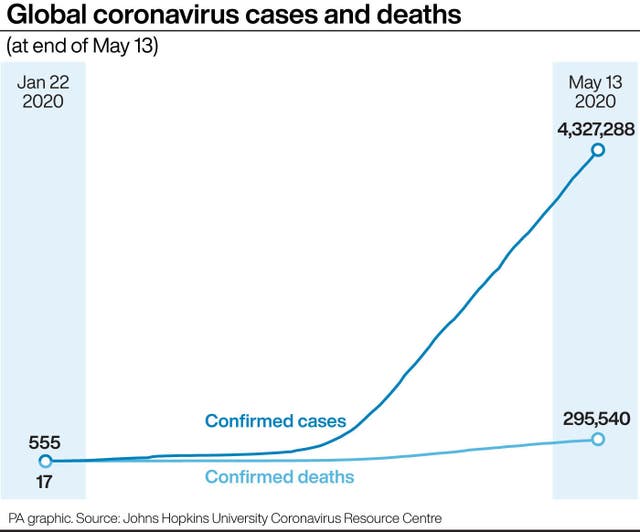Lockdown restrictions eased worldwide as countries adapt to ‘new normal’
For most world leaders the focus is on how to get back to business and revive economies reeling from record numbers of job losses.

Communities across the world are adapting to the realities of living with the coronavirus pandemic while battling to save their economies.
Japan is preparing to end its coronavirus state of emergency for most regions, while New Zealand has further relaxed its restrictions after deciding its outbreak is under control.
It could be weeks before it is clear whether reopenings will cause a spike in Covid-19 cases. The trajectory of outbreaks vary wildly, with steep increases in cases in some places, decreases in others and infection rates that can shift dramatically from neighbourhood to neighbourhood.
So, in many parts of the world, communities and individuals are finding inventive ways to cope with what many view as a “new normal”.

Cesar Miranda Ribeiro, president of the city-owned RioFilme company, said the effort called “Cinema In The Windows” is aimed at “trying to take care of the mental health of the people”.
Chinese looking for some stay-at-home retail therapy have tuned into livestream shopping.
Others seeking spiritual support and human connections are worshipping remotely via online religious services from the Vatican to village churches, to mosques and temples.

Japanese Prime Minister Shinzo Abe is due to hold a news conference to explain plans to lift the country’s state of emergency in most places ahead of schedule as the number of new cases falls, with the exception of Tokyo and several other high-risk areas.
So far, Japan, with a population of 126 million, has reported 16,000 confirmed cases of coronavirus and about 680 deaths.
The US has the largest coronavirus outbreak in the world by far with 1.39 million infections and more than 84,000 deaths, according to a tally by Johns Hopkins University. Worldwide, the virus has infected more than 4.3 million people and killed some 297,000. Experts say the actual numbers are likely to be far higher.

Dr Rick Bright’s evidence is due on Thursday and follows this week’s warning by Dr Anthony Fauci, the government’s top infectious disease expert, that rushing to lift store-closing and stay-at-home restrictions could “turn back the clock”, seeding more suffering and death and complicating efforts to get the economy rolling again.
But the pressure is on to halt job losses after the US unemployment rate soared to 14.7% in April, the highest since the Great Depression.
With roughly 30 million Americans out of work, Federal Reserve chairman Jerome Powell has urged Congress and the White House to act further to prevent long-lasting harm. More government spending and tax breaks will be “worth it if it helps avoid long-term economic damage and leaves us with a stronger recovery”, Mr Powell said.





